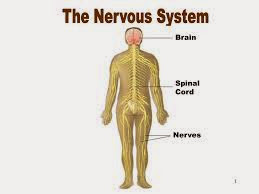For children performed by a pediatric neurologist, which is a branch of pediatrics. The neurologist deal with disorders of the nervous system, including the central nervous system (brain, brainstem, and cerebellum), the peripheral nervous system (eg brain nerve), and the autonomic nervous system. Neurology can also diagnose and examine a few cases on the muscular system and bones (musculoskeletal). Some examples of abnormalities that occur in the nervous system, among others:
- Stroke (Cerebrovascular accident (CVA) or cerebral apoplexy) is damage to the brain due to blockage or rupture of blood vessels of the brain.
- Poliomyelitis is a disease caused by a viral infection that attacks the motor neurons of the nervous system (brain and spinal cord).
- Epilepsy is a disease due to release electric eruptions (impulse) in the neurons of the brain.
- Parkinson's is a disease caused by reduced dopamine neurotranslator, on the basis of ganglion with symptoms; hand tremor at rest (but shaking was lost during sleep), difficulty moving, muscle rigidity, stiff facial muscles making it appear as if masked, hard eyes blink and move be small and stiff legs.
- Transection is damage or a certain segment of the entire spinal cord. For example, due to a fall, which is accompanied by a predictable destruction of the spine.
- Neurasthenia (nervous weakness), the disease is there because of a congenital, too heavy sufferer, spiritually too weak, or because of illness poisoning.
- Neuritis is inflammation of the nerves which happens due to physical influences such as broken bones, punch pressures, and may also be due to toxins or deficiency of vitamin B1, B6, B12.
loading...
